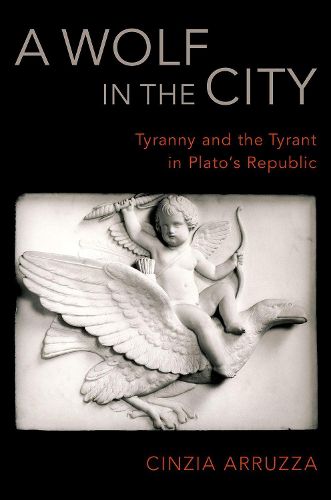Readings Newsletter
Become a Readings Member to make your shopping experience even easier.
Sign in or sign up for free!
You’re not far away from qualifying for FREE standard shipping within Australia
You’ve qualified for FREE standard shipping within Australia
The cart is loading…






The problem of tyranny preoccupied Plato, and its discussion both begins and ends his famous Republic. Though philosophers have mined the Republic for millennia, Cinzia Arruzza is the first to devote a full book to the study of tyranny and of the tyrant’s soul in Plato’s Republic.In A Wolf in the City, Arruzza argues that Plato’s critique of tyranny intervenes in an ancient debate concerning the sources of the crisis of Athenian democracy and the relation between political leaders and demos in the last decades of the fifth century BCE. Arruzza shows that Plato’s critique of tyranny should not be taken as veiled criticism of the Syracusan tyrannical regime, but rather of Athenian democracy. In parsing Plato’s discussion of the soul of the tyrant, Arruzza will also offer new and innovative insights into his moral psychology, addressing much-debated problems such as the nature of eros and of the spirited part of the soul, the unity or disunity of the soul, and the relation between the non-rational parts of the soul and reason.
$9.00 standard shipping within Australia
FREE standard shipping within Australia for orders over $100.00
Express & International shipping calculated at checkout
Stock availability can be subject to change without notice. We recommend calling the shop or contacting our online team to check availability of low stock items. Please see our Shopping Online page for more details.
The problem of tyranny preoccupied Plato, and its discussion both begins and ends his famous Republic. Though philosophers have mined the Republic for millennia, Cinzia Arruzza is the first to devote a full book to the study of tyranny and of the tyrant’s soul in Plato’s Republic.In A Wolf in the City, Arruzza argues that Plato’s critique of tyranny intervenes in an ancient debate concerning the sources of the crisis of Athenian democracy and the relation between political leaders and demos in the last decades of the fifth century BCE. Arruzza shows that Plato’s critique of tyranny should not be taken as veiled criticism of the Syracusan tyrannical regime, but rather of Athenian democracy. In parsing Plato’s discussion of the soul of the tyrant, Arruzza will also offer new and innovative insights into his moral psychology, addressing much-debated problems such as the nature of eros and of the spirited part of the soul, the unity or disunity of the soul, and the relation between the non-rational parts of the soul and reason.